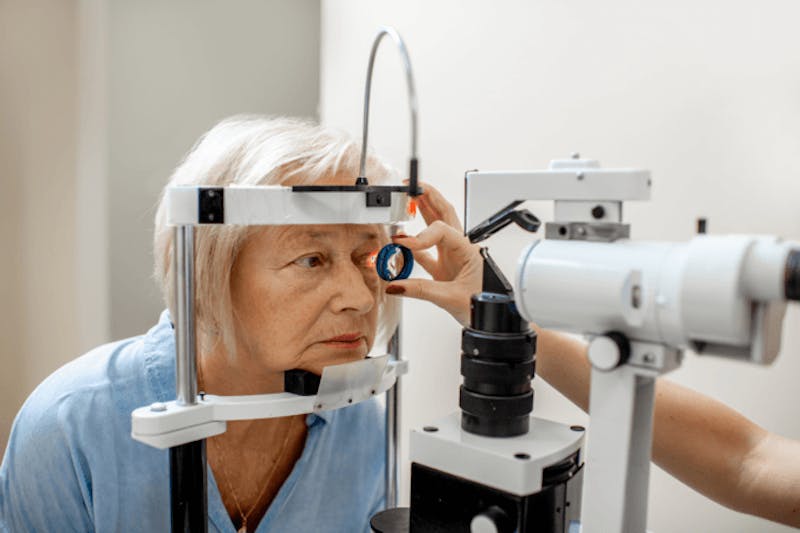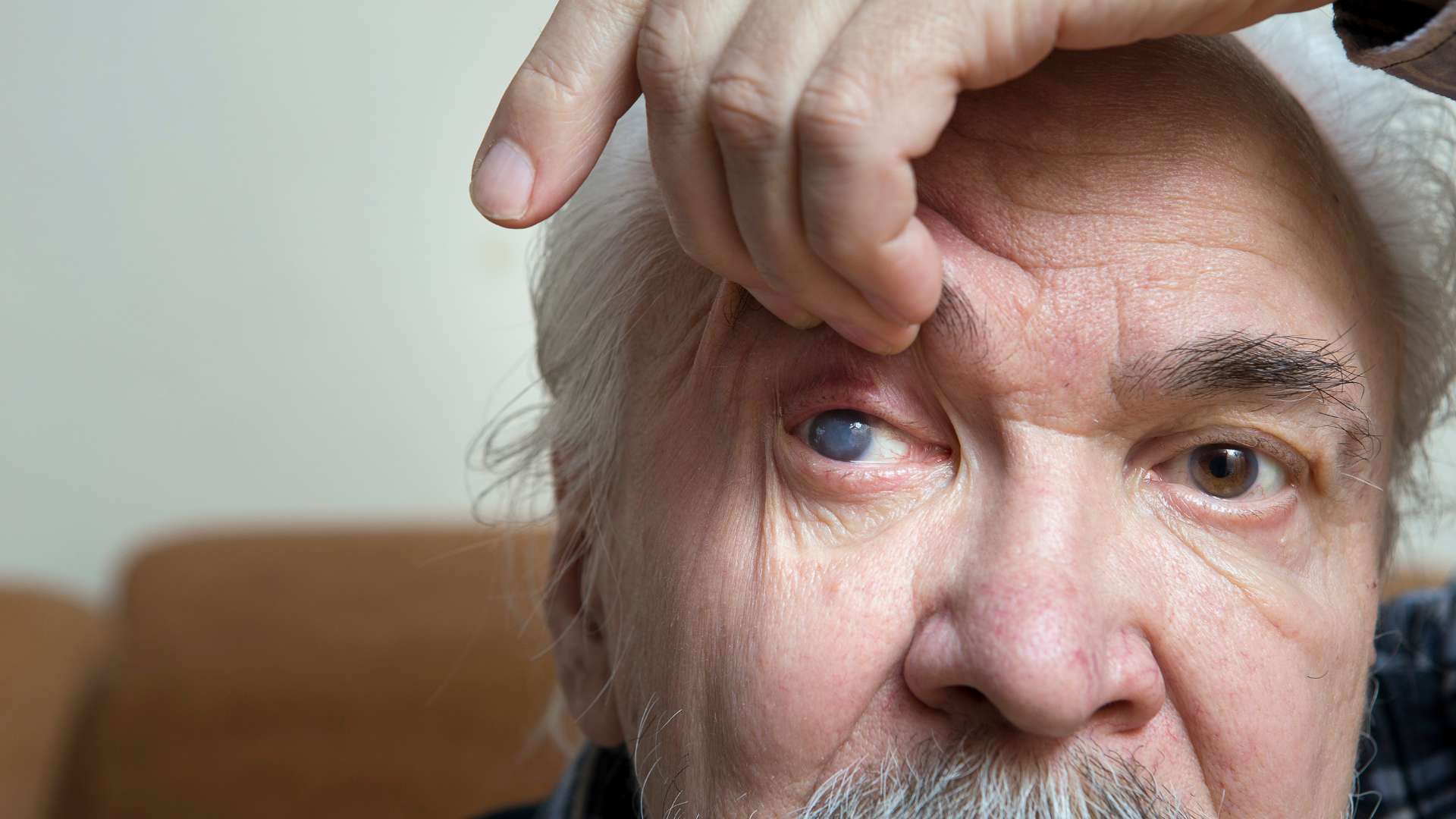
What Are Common Age-Related Vision Changes?
As much as we’d like to avoid any changes to our eyesight or vision problems as we age, it’s an inevitable part of what life has in store for us. The truth is there are several different issues that can affect your eye’s ability to focus or see clearly -- most of which are described below:
Presbyopia:
The term ‘presbyopia’ originates from a Greek word that means ‘old eye.’ It’s an age-related eye condition that impacts your ability to see clearly up close due to an abnormally-shaped lens, despite seeing fine at a distance. The symptoms are similar to that of farsightedness, but presbyopia is caused by age.
A cataract is characterized by clouding of the eye’s natural lens. This impacts your ability to see things clearly and is similar to looking through a foggy window or frosted glass. Most people don’t notice any symptoms at first, but the symptoms eventually get worse over time.
Glaucoma is an umbrella term for several eye conditions that cause damage to the optic nerve, which is the main communication line between the eyes and the brain. Light is converted into an electrical signal in the back of the eye (retina) before traveling to the brain via the optic nerve.
Retinal Disorders:
There are a number of eye conditions that cause damage to the retina (back of the eye), including age-related macular degeneration, diabetic retinopathy, and retinal detachment or retinal tear. Any damage to the retina can impact the transfer of images to the brain.
Throughout the day, your eyes produce tears that help lubricate and nourish the eye. As you age, the quality and quantity of tears can decrease, which would disrupt the nourishment and lubrication of the eye. This causes dry eye and can result in damage to the eye’s front surface.
Can Age-Related Vision Problems Be Corrected With Laser Surgery?
The eyes generally start to experience changes and problems at age 40 and again at age 60. Although there’s no way to avoid this entirely (as it’s a normal part of the aging process) there are a number of ways to slow this down and preserve your vision for as long as possible.
It’s important to note that not every eye condition has a cure, but treatment options are available for most eye conditions as you age. With advancements in technology, laser surgery has become a frequently-used option for those above the age 40 and can help you see clearly again.
Laser Eye Surgery Options for Vision Correction
If you’re starting to experience problems with your eyesight as a result of aging, you’ll need to visit the eye doctor so they can detect and diagnose the problem. Once diagnosed, they’ll be able to help you find the right treatment plan based on your current eye health and family history.
Let’s take a look at some of the most prominent laser eye surgery treatment options available today:
1. LASIK Eye Surgery
LASIK eye surgery is generally reserved for patients with a refractive error (nearsightedness or farsightedness) or astigmatism. However, it’s not a treatment option for those with presbyopia and is usually not a good option for those over 40 years old -- unless you have healthy eyes.
2. Refractive Lens Exchange (RLE)
If you’re not a candidate for LASIK and are suffering from hyperopia, myopia, presbyopia, or an early cataract, RLE is a treatment option for you. A refractive lens exchange is when your natural lens is replaced with an intraocular lens (IOL) that matches your prescription.
3. Cataract Surgery
Cataract surgery is extremely similar to a refractive lens exchange. It involves replacing your natural lens with IOLs (intraocular lenses). The main difference between the two is that cataract surgery is recommended when the patient experiences clouding of the eye’s natural lens.
4. Implantable Collamer Lens (ICL)
An implantable collamer lens (ICL) can help treat myopia (nearsightedness) and astigmatism in patients that don’t qualify for LASIK eye surgery or a photorefractive keratectomy. It’s when a contact lens is implanted into the eye. A Raindrop Presbyopic Inlay is an ICL that treats presbyopia.
5. Laser Photocoagulation
Laser photocoagulation is a treatment option for those with diabetic retinopathy or macular edema from other causes. Although it can’t always correct vision that you’ve already lost, it can help recover some of the vision and is a great treatment when used in combination with other medicines.
6. Corrective Lenses & Reading Glasses
It’s important to note that some eye conditions don’t call for laser eye surgery. In these cases, a prescription for corrective lenses, reading glasses, or contact lenses would suffice. If your eyesight worsens, then laser eye surgery would be recommended.
Contact Coastal Eye Surgeons for Immediate Assistance
Whether you believe you’re experiencing issues with your vision or it’s been a while since your last comprehensive eye exam, contact Dr. Omar Shakir immediately for a visit. Not only does a regular eye exam help detect issues in their early stages, but it’s necessary for good eye health.
Contact Coastal Eye Surgeons today if you have any questions or want to schedule an exam. The sooner you come in and visit us, the sooner we can go over your treatment options and help you preserve that beautiful eyesight of yours for the future.



